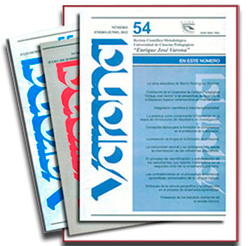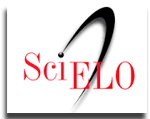Precisiones para autores y ajustes de las normas de publicación
Saludos, colegas:
Teniendo en cuenta la actualización de las normas editoriales y de publicación de las contribuciones para nuestra revista, el colectivo editorial ofrece a sus autores e investigadores interesados las nuevas precisiones que deberán tenerse en cuenta para el ajuste necesario de los artículos apartir de la edición número 78.
Leer más acerca de Precisiones para autores y ajustes de las normas de publicación









